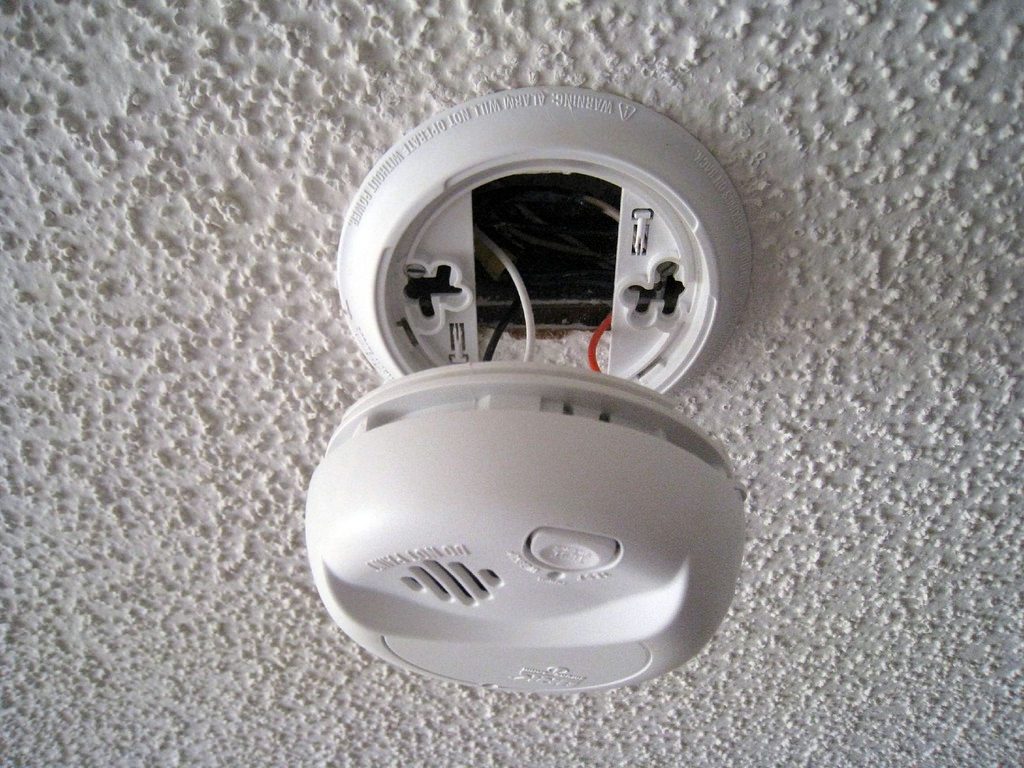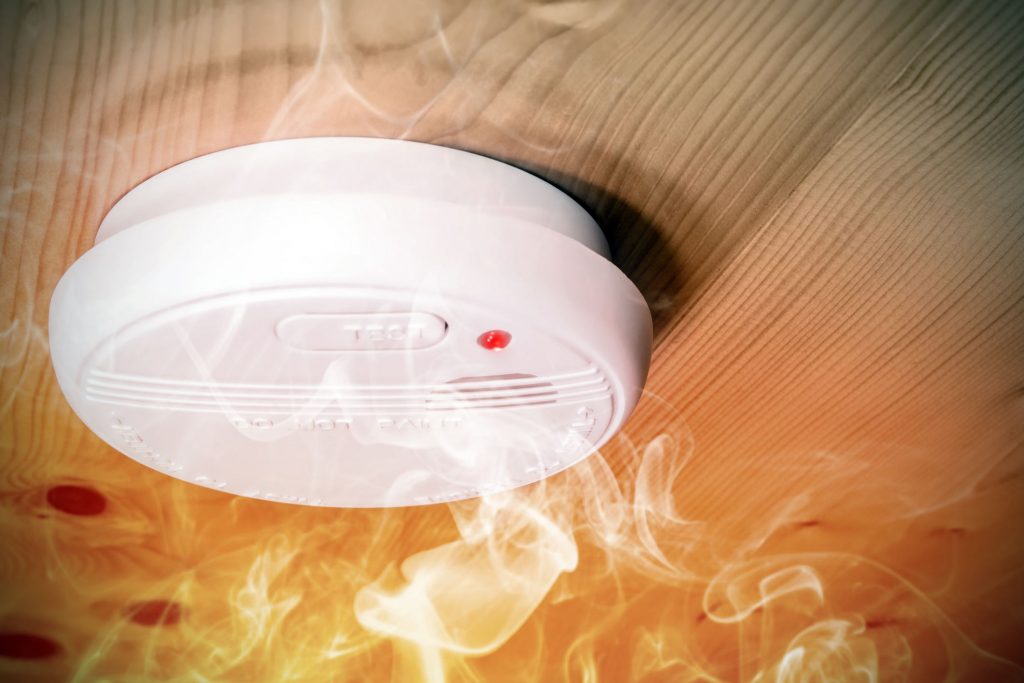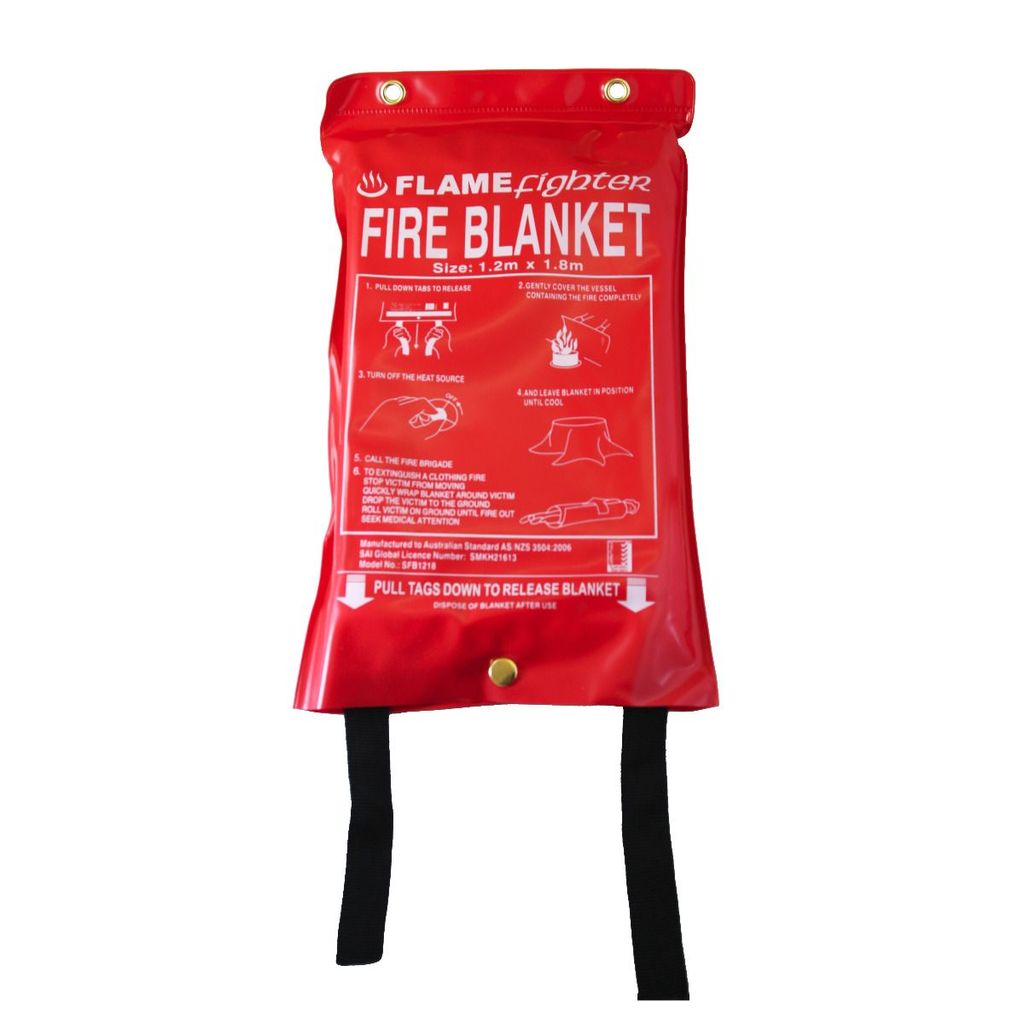Fire Safety: Working from Home

It may seem obvious, but fire safety when working from home is a consideration that more and more people are taking on with the ever-growing trend.
Here, we look at the most important aspect to consider when protecting yourself from a fire when working remotely – the smoke detector.
Just how important do you think your smoke detector is?
Apart from the occasional irritating squeak if they need a battery change, we tend not to even notice smoke detectors. However, they are a vital part of your fire safety working from home equipment because they are the essential early warning that something is wrong. The little round life savers are everywhere but we seldom give them a second thought.
When was the last time you thought about checking the batteries or have you taken them out? That squeak may be annoying, but not as annoying as losing everything you own.
Is one smoke dector enough?
Depending upon the number of rooms you have, you will need more than one smoke detector. Make sure you fit your smoke detectors away from kitchens or bathrooms as steam can damage the alarm, or set it off by mistake. This is generally why people remove the batteries, because steam sets them off. So by taking some time to think about where to position them, will save irritation and a life if they are needed.

Did you know there is more than one type of smoke detectors?
There are really three main methods employed for smoke detection.
Ionisation – This the most common detector for domestic and small area use. Inside the detector is an ionisation chamber that detects the changes in its ionisation process if smoke particulates interrupt it. This sets off the alarm. They are simple and cheap to make but they can be over sensitive and occasionally simple kitchen particulates or even dust can set them off. That said they are a perfectly acceptable first line defence against fire around the UK.
Heat – A heat detector is not sensitive to particulates, so it is less prone to false alarms. They are often used in kitchens and other potentially ‘smokey’ environments where the presence of smoke does not necessarily mean a fire. Instead they detect changes in temperature, but this can limit them to a small area.
Photoelectric – These smoke detectors work by going off when smoke interferes with a steady beam of light causing it to strike a sensor. The upside of photoelectric is that they are more likely to detect smouldering furniture and similar and they don’t go off every time someone burns the toast. However, they are more expensive than Ionisation and so not very popular in low end applications.
Some smoke detectors will have a combination of the above kinds in a single unit. Whatever alarm you have, as with all emergency equipment, it is important that you have the right thing installed to ensure a consistent and appropriate overall fire safety working from home procedure.
5 Things To Remember About Your Fire Detectors
- A smoke detector only has one purpose. It will give you advance warning that there is a potential problem which will hopefully give you a few valuable seconds to make your escape. Unless the cause is obvious do not ignore them or assume they have gone off accidentally. While you are debate the fire could be spreading rapidly.
- Do not interfere with them. Our trainers here at the Fire Training Company can tell you stories that would make your hair curl about people doing stupid things with Smoke Detectors. Next time you visit a hotel notice how the warnings about not smoking in rooms are very close to the warnings about how much you will be charged for tampering with a smoke detector. Playing around with them can cost lives.
- Remember to change the batteries regularly if needed. Some detectors rely on a battery as backup. This will need changing annually as a minimum. If you have a mains powered detector with a rechargeable battery built in, make sure you are aware of the maintenance schedules.
- They should be replaced every 10 years. Sorry, but you cannot simply install a smoke detector and expect it to live forever.
- Clean and maintain it. At regular intervals give the smoke detectors a little TLC. Remember dust and other contamination will reduce the effectiveness of the detector, so most manufacturers suggest you use the soft brush part of a vacuum to clean around the vents and sensors one or twice a year.

Fire safety when working from home: Are you using more electronic devices than usual?
Keep yourself and your home safe, don’t overload your plug sockets, leave leads trailing that people could trip over. Whether you own or rent your home, it’s important to know the signs of a potential electrical problem. Look out for scorch marks, flickering lights, hot plugs and sockets, fuses that blow or circuit-breakers that trip for no obvious reason. These could all be signs of loose or dangerous wiring. If in doubt get them checked by a qualified electrician – you are within your rights to ask this of your landlord if you are a tenant.
Also be aware if you are using electric heaters as an additional way to keep warm. Ensure that you don’t block your exit in an emergency. Don’t let anything fall onto the heater, more fires seem to occur when it’s colder. Most of these fires are easily preventable. Don’t become another statistic, it’s important to stay safe while heating your home.
Don’t leave electrical items unattended on soft surfaces, such as beds, cushions and bedding. Always use on a hard, flat, non-flammable surface. This is especially important if you are charging anything, as this increases the heat and is a potential fire danger area.

Are you concentrating in the kitchen?
Think when you decide to make that coffee or maybe heat up some soup or even the old adage “did I leave the iron on”. Carelessness causes fires, so take a break from your desk and concentrate on what you are doing in the kitchen.
Know how to use a fire blanket. Fire blankets are absolutely the very best instant response to some fire emergencies, and they can kill the flames (and the danger of the fire spreading) very quickly. To get the most from them you really do need to know how to use them effectively, quickly, and without panicking.

If you wouldn’t do it in the office – Don’t do it at home!
You probably think you know your home very well, but do you know how to get out quickly and safely in an emergency. Is there likely to be anyone else at home with you? Shouting up the stairs may not work if they have earphones in. As ridiculous as it may seem, have an evacuation plan and ensure everyone in your house knows it.
Many people may well adapt to permanently working from home, so ensure your own safety by taking time out to ensure your safety. It’s well worth investing in our Fire Safety training to know more how to respond to fires and fire prevention.
For more information please contact us by phone on 01327 552160, by email hello@smarthorizons.co.uk or via our online Chat system. Our staff are now based at home but working from 9am to 5.30pm Monday to Friday.
